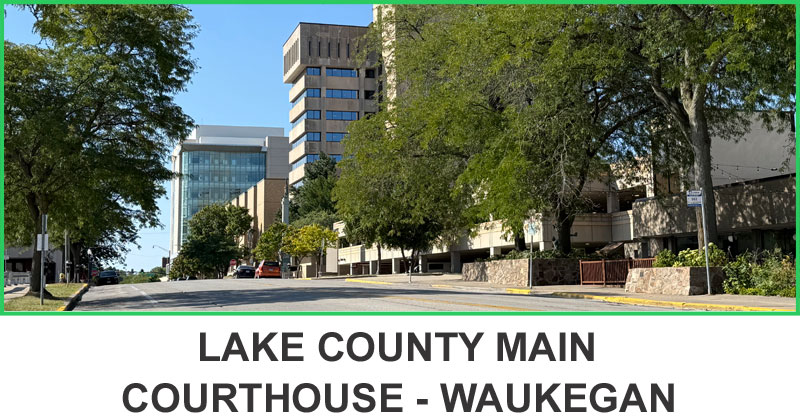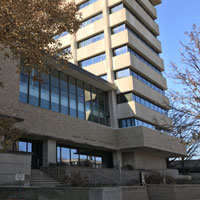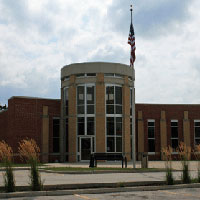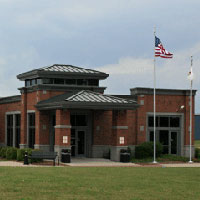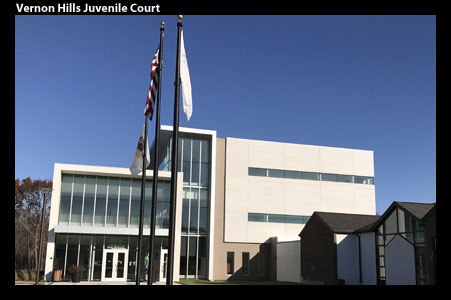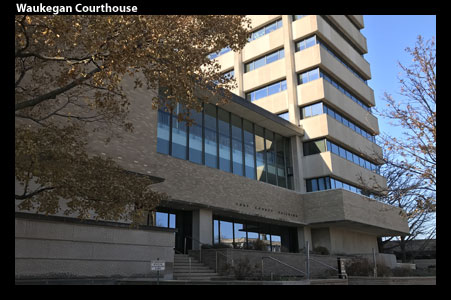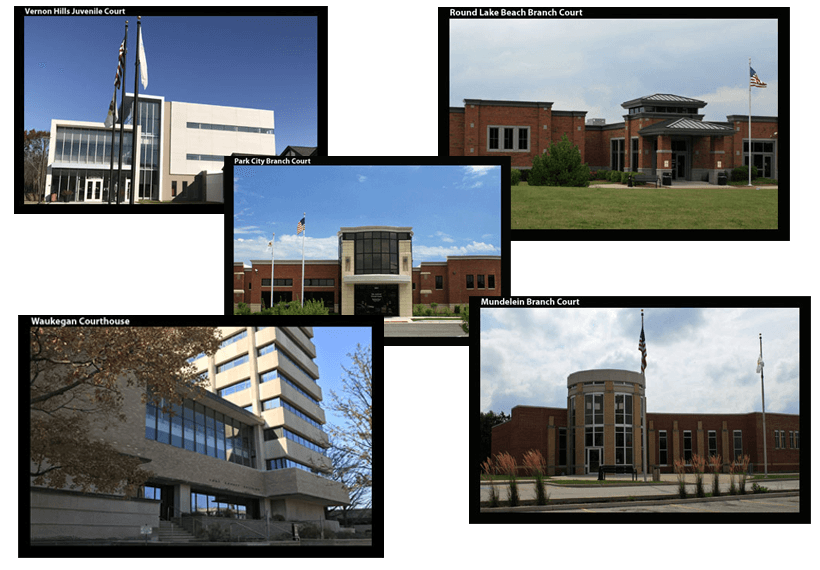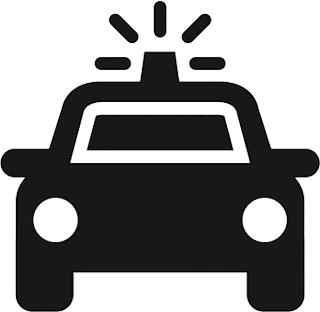Failure to Reduce Speed to Avoid an Accident Traffic Ticket Defense Attorney Lake County Illinois
Office Located in Waukegan

Matt Hoffman
Former Lake County Assistant State's Attorney
25+ Years in Lake County
Former Felony Prosecutor
All Accident Tickets

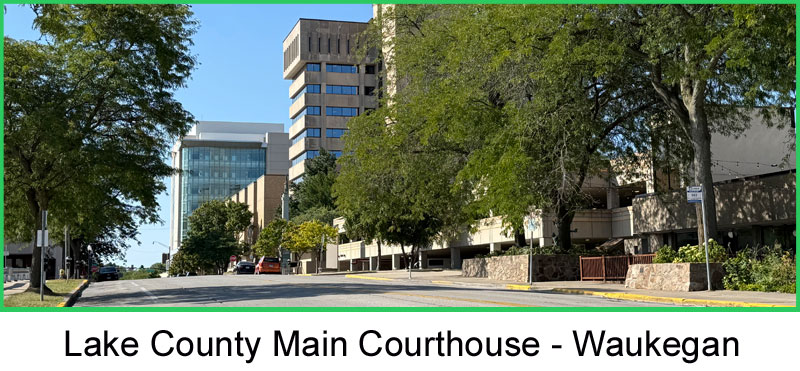
Work with a Former Lake County Traffic Accident Ticket Prosecutor
Work with a Former Lake County Traffic Accident Ticket Prosecutor
The HoffmanLaw Office defends drivers against traffic tickets for failure to reduce speed to avoid an accident at the Lake County, Illinois traffic courts located in Mundelein, Park City, Round Lake Beach and Waukegan. Call The HoffmanLaw Office at (847) 587-5000 for a free consultation.
If the police issued you a ticket after you were involved in a traffic accident in Lake County, there is a good chance you were charged with failure to reduce speed to avoid an accident.
A traffic ticket charging failure to reduce speed to avoid an accident is the most commonly-issued type of traffic citation in Lake County traffic accident cases.
The HoffmanLaw Office has more than twenty-five years of experience with Lake County failure to reduce speed to avoid an accident tickets, as well as with many other types of traffic accident related tickets.
My name is Matt Hoffman. I'm a former Lake County Assistant State's Attorney and former Lake County traffic court prosecutor. I've been working in Lake County courtrooms since 1999. I'd be happy to talk with you about your case.
For a free, zero-obligation consultation on your case, call me or fill out the form on this website.
Failure to Reduce Speed to Avoid an Accident is Found in Illinois Vehicle Code Section 11-601(a)
Failure to Reduce Speed to Avoid an Accident is Found in Illinois Vehicle Code Section 11-601(a)
In the Illinois Vehicle Code, the charge of failure to reduce speed to avoid an accident is to be found in Section 11-601. Section 11-601 is titled, "General speed restrictions."
Section 11-601 itself contains a number of subprovisions, one of which outlaws the specific act of driving over the applicable speed limit.
This prohibition against speeding is contained in Section 11-601(b), where it is stated, "No person may drive a vehicle upon any highway of this State at a speed that is greater than the applicable maximum statutory speed limit . . ." See, 625 ILCS 5/11-601(b).
Section 11-601(b), however, is not the portion of Section 11-601 that is used to charge the offense of failure to reduce speed to avoid an accident.
The offense of failure to reduce speed to avoid an accident is described separately in Section 11-601(a).
Section 11-601(a) states, in part, as follows:
"No vehicle may be driven upon any highway of this State at a speed which is greater than is reasonable and proper with regard to traffic conditions and the use of the highway, or endangers the safety of any person or property . . . Speed must be decreased as may be necessary to avoid colliding with any person or vehicle on or entering the highway in compliance with legal requirements and the duty of all persons to use due care." See, 625 ILCS 5/11-601(a) (emphasis added).
As may be seen by an examination of all of Section 11-601, nowhere in that entire statute do the words appear, "failure to reduce speed to avoid an accident." The name of this charge, therefore, is an extrapolation from the language of Section 11-601(a).
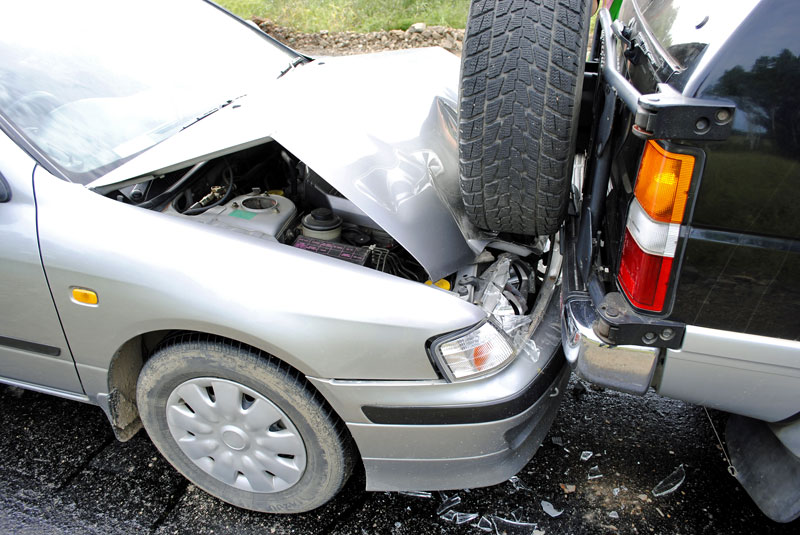
To Be Ticketed, There is no Requirement that a Driver was Speeding at the Time of the Crash
To Be Ticketed, There is no Requirement that a Driver was Speeding at the Time of the Crash
From a very general perspective, a driver charged with failure to reduce speed to avoid an accident involving another vehicle has been accused of failing to bring the driver's vehicle to a stop before the driver collided with another vehicle, and in a circumstance where that driver should have done so.
Under this analysis, there is no requirement that, in order to be charged with failure to reduce speed to avoid an accident, the driver must be shown to have been actually exceeding the applicable speed limit.
Carrying this observation further and to an extreme, it is conceivable that a driver could be charged with failure to reduce speed to avoid an accident if the driver was traveling one mile per hour at the time of a collision, but violated the duty of care to avoid that impact.
Usually Only One Driver in a Collision is Charged with Failure to Reduce Speed to Avoid an Accident
Usually Only One Driver in a Collision is Charged with Failure to Reduce Speed to Avoid an Accident
A question might arise, then, as to why, when a collision between two moving vehicles has occurred on a Lake County roadway, and then the police respond to the scene of the accident and investigate, don't the police always charge both drivers with failure to reduce speed to avoid an accident, since both drivers were involved in the accident and both drivers were moving?
Couldn't it be argued that if one driver was going to get a ticket, then the other driver also should be given a ticket for the same thing?
Additionally, couldn't it be argued that since both vehicles were moving at the time of the collision, the drivers of both vehicles failed to reduce their speeds to avoid the accident that ultimately occurred?
There are cases where both drivers involved in a car crash do get charged with a moving violation for being in the accident, but such cases are not common.
This is because when they investigate the facts of an accident, in the overwhelming majority of cases in which the police issue a ticket for failure to reduce speed to avoid an accident, or any other accident-related ticket, the police have determined, implicitly, explicitly, or both, that the driver so-ticketed violated her or his duty to use due care and that the other driver did not.
Although nowhere in all of Section 11-601 does the word "fault" appear, in practice, when a police officer writes someone a ticket for failure to reduce speed to avoid an accident, the officer may tell that person that they're the one getting the ticket because they're the one "at fault."
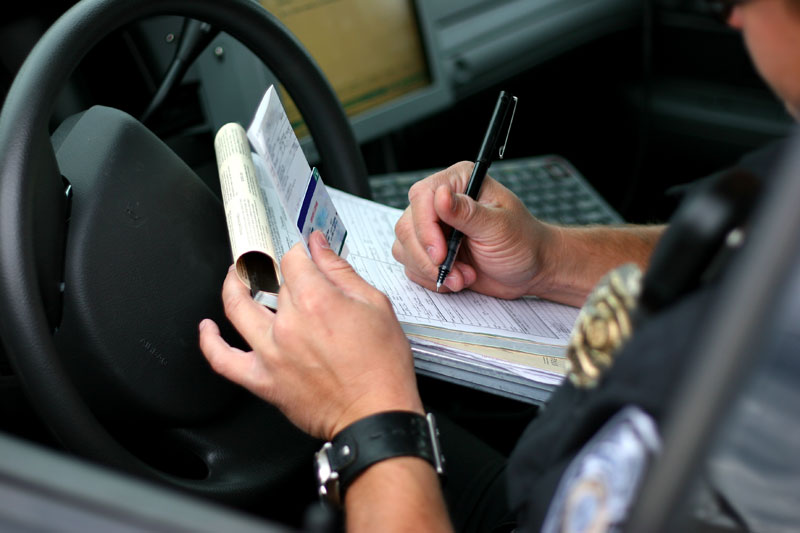
The Driver Information Exchange and Illinois Traffic Crash Report Documents
The Driver Information Exchange and Illinois Traffic Crash Report Documents
If you are ticketed for your involvement in an accident, in addition to your ticket(s), the police may provide you one or more other documents intended to furnish you and the other driver(s) involved with information.
One such document may be titled "Driver Information Exchange." A driver information exchange document typically contains basic information on the names, addresses, vehicles, and insurance coverage of the parties involved in the accident.
A separate and more detailed document the police may create and subsequently make available to you is called a "crash report," or "Illinois Traffic Crash Report."
A crash report is a document produced by the police who investigated the accident. Typically, this document consists of two pages.
The first page contains information on the drivers and vehicles involved in the accident, as well as driver vehicular insurance information.
The second page may contain a diagram of the accident and a narrative description of the accident produced and authored by the police.
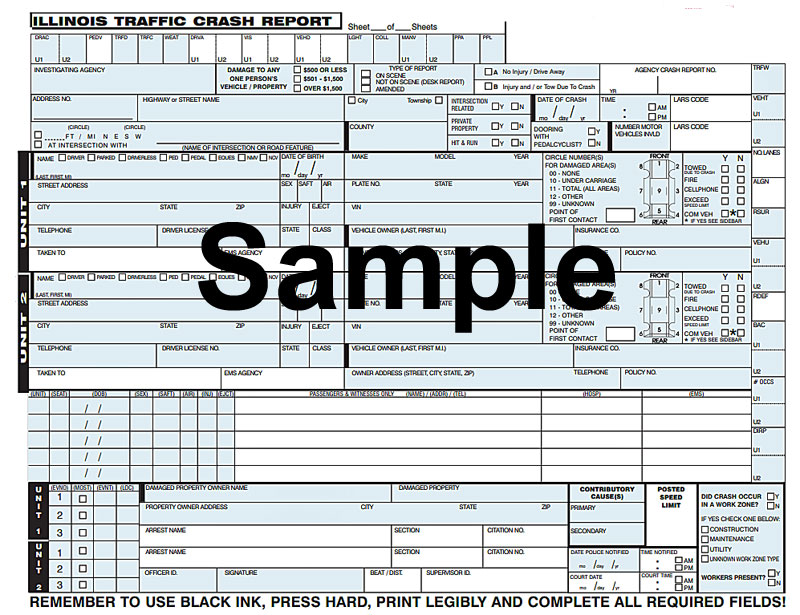
This is a representative sample of the first page of an Illinois Traffic Crash Report form.
Potential Penalties for Failure to Reduce Speed to Avoid an Accident
Potential Penalties for Failure to Reduce Speed to Avoid an Accident
The charge of failure to reduce speed to avoid an accident under Section 11-601(a) is a petty offense moving violation. An Illinois petty offense moving violation is non-jailable.
It is Section 135/1-5 of the Illinois Criminal and Traffic Assessment Act that specifically enumerates basic qualities of a petty offense. That statute states:
"'Petty offense' means any offense punishable by a fine of up to $1,000 and for which a sentence of imprisonment is not an authorized disposition." See, 705 ILCS 135/1-5.
Court-imposed punishment for failure to reduce speed to avoid an accident may include a fine, statutory assessments (also known as "court costs"), traffic safety school and other conditions.
Upon a finding of guilty, the court may enter a conviction for the offense or place the driver on court supervision. To receive court supervision, which is not a conviction for the offense, a driver must be eligible to receive court supervision under Illinois law.
The Presumption of Innocence, Burden of Proof, and Right to Trial in an Accident Case
The Presumption of Innocence, Burden of Proof, and Right to Trial in an Accident Case
The issuance of a ticket for failure to reduce speed to avoid an accident is, of itself, not a determination of guilty. If you have been issued such a ticket, you are presumed innocent of the charge and you have the right to challenge your ticket in court in a trial.
In a trial, the burden of proof is on the prosecution. That means the prosecution has the obligation of producing evidence and testimony to try to prove the charge(s) against you.
For a failure to reduce speed to avoid an accident ticket issued under Section 11-601(a) of the Illinois Vehicle Code, which is the law of the State of Illinois, the burden of proof is beyond a reasonable doubt.
In failure to reduce speed to avoid an accident cases, most often the main witness for the prosecution is the other driver involved in the crash. In accident cases where three or more vehicles in total were involved, multiple drivers may be called to testify as witnesses for the prosecution.
Not only drivers may be called to testify by the prosecution, but any other witnesses to the accident may be called to testify as well. These witnesses may have been passengers in the vehicle(s) involved, or other witnesses who claim to have seen the accident.
Police also may be called to testify as prosecution witnesses.
As the defendant in a failure to reduce speed to avoid an accident case, you have the right to testify in your defense. You may, alternatively, exercise your right to remain silent and not testify during the trial. Also, you have the right to call witnesses of your own to testify in a defense case.
The burden of proof never shifts onto you to prove your innocence.

Experienced Attorney Defending Lake County Failure to Reduce Speed to Avoid an Accident Traffic Tickets
Experienced Attorney Defending Lake County Failure to Reduce Speed to Avoid an Accident Traffic Tickets
As an attorney, I've worked on failure to reduce speed to avoid an accident cases in the Lake County, Illinois courts for more than 25 years.
The courthouses where I defend drivers against this type of traffic ticket are located in Mundelein, Park City, Round Lake Beach and Waukegan.
My approach to my defense of a failure to reduce speed to avoid an accident ticket relies on my many years of experience in working on these cases. No two accident tickets I have ever defended have been identical. Every accident case I have worked on over the years has been unique.
For this reason, if I become your defense lawyer, and therefore your courtroom legal advocate, I will take whatever time is necessary to fully analyze and properly understand the facts of your case. I believe comprehensive preparation is critical to the defense of traffic accident cases.
One aspect of my prior experience as an attorney that benefits my clients is the fact that I am a former Lake County, Illinois traffic court prosecutor.
Specifically, I am a former Lake County Assistant State's Attorney, with prior experience of having worked in the Traffic Division of the Lake County State's Attorney's Office as part of the overall six-year period I spent as a Lake County prosecutor.
I will bring not just my former prosecutorial experience, but my many years' experience as a Lake County defense lawyer to the defense of your failure to reduce speed to avoid an accident case.
Should you wish to review your case, you may contact me today for a free consultation.
Defending All Other Types of Lake County, Illinois Traffic Accident Tickets- Not Just Failure to Reduce Speed
Defending All Other Types of Lake County, Illinois Traffic Accident Tickets- Not Just Failure to Reduce Speed
Although a ticket for failure to reduce speed to avoid an accident is the most commonly-issued traffic ticket in Lake County traffic accident cases, by no means is it the only type of accident-related ticket that may be issued.
There are many types of traffic accident cases where the police do not charge failure to reduce speed to avoid an accident at all, but instead issue a ticket, or tickets, for something different.
There are also traffic accident cases where the police do, indeed, issue a ticket for failure to reduce speed to avoid an accident, but then also issue one or more additional traffic tickets alleging the commission of additional moving violations.
Moving forward, then, I will discuss examples of some other types of traffic tickets the police may issue in a Lake County traffic accident case.
These other types of tickets derive from three general categories of alleged driver action: the alleged failure to yield, the alleged disobedience of specific signs, and the alleged failure to stop.
Failure to Yield While Turning Left Within an Intersection
Failure to Yield While Turning Left Within an Intersection
A traffic accident ticket for failure to yield while turning left within an intersection, issued under Section 11-902 of the Illinois Vehicle Code, usually addresses the situation where a driver allegedly turned left in an intersection in front of oncoming traffic that had the right of way.
Section 11-902 states, in part, as follows: "The driver of a vehicle intending to turn to the left within an intersection . . . shall yield the right-of-way to any vehicle approaching from the opposite direction which is so close as to constitute an immediate hazard, but said driver, having so yielded may proceed at such time as a safe interval occurs." See, 625 ILCS 5/11-902.
The factual scenario involving a failure to yield while turning left within an intersection ticket commonly, but not always, involves an intersection controlled by traffic lights.
In this instance, one driver may claim they were entering the intersection on a green or yellow light when the other driver suddenly made a left turn directly in front of them.
In this situation, the first driver will claim they had the right-of-way and that, when the other driver turned out in front of them, it was impossible to avoid a collision.
If the police agree with this assessment, they may issue the driver who made the left turn a ticket for failure to yield while turning left within an intersection under Section 11-902.
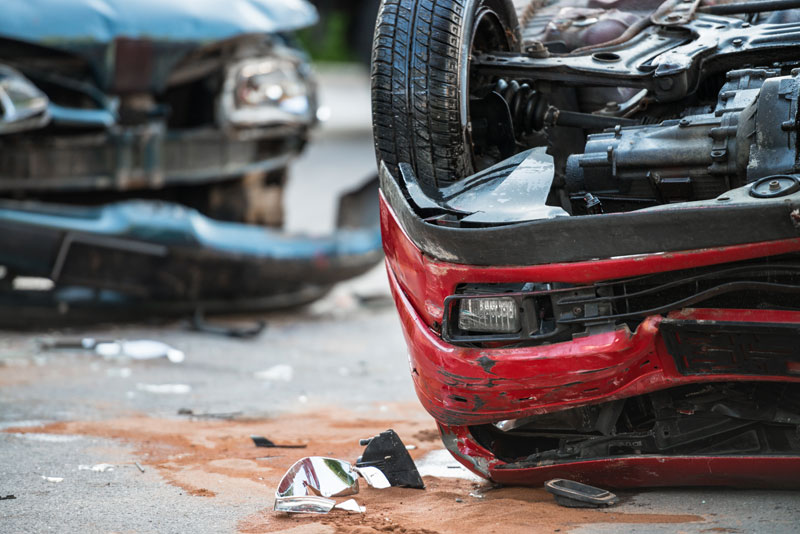
Failure to Yield When Exiting a Private Road or Driveway
Failure to Yield When Exiting a Private Road or Driveway
A traffic accident ticket for failure to yield when exiting a private road or driveway, issued under Section 11-906 of the Illinois Vehicle Code, typically addresses the situation where a driver allegedly pulled out of a private (not public) road or driveway onto a roadway without yielding the right-of-way to traffic on that roadway.
A classic example of when police issue this type of ticket occurs when a driver allegedly pulled out of a parking lot onto a roadway, at a time when one or more vehicles were approaching on that roadway from the left.
A collision then occurred, the driver who was approaching from the left crashing into the driver who just pulled out of the parking lot.
If police who respond to this type of accident determine the driver who pulled out of the parking lot did so unsafely, and therefore failed to yield the right-of-way to one or more vehicles approaching from the left, police might issue the driver who departed the parking lot a ticket for failure to yield when exiting a private driveway, under Section 11-906 of the Illinois Vehicle Code.
Disobeying a Traffic Control Device
Disobeying a Traffic Control Device
A traffic accident ticket for disobeying a traffic control device, alternatively titled "disobedience of official traffic control device," issued under Section 11-305(a) of the Illinois Vehicle Code, alleges that a driver failed to abide by the requirement of a traffic control device.
This type of ticket sometimes is issued in a traffic accident case where the police believe the accident occurred because a driver ignored the directive of a traffic control device.
The traffic control device at issue in one of these cases typically is a sign- some type of street sign regulating the movement of traffic.
If, after having investigated an accident, the police conclude the accident would not have occurred if one of the drivers had obeyed a controlling traffic sign, then the police may charge that driver with disobeying a traffic control device under Section 11-305(a).
Disobeying a Traffic Control Signal
Disobeying a Traffic Control Signal
In the Illinois Vehicle Code, immediately next to the statute defining disobeying a traffic control device is the statute describing the offense of disobeying a traffic control signal. This latter statute is to be found in Section 11-306.
Section 11-306 describes a type of ticket that may be issued to a driver who was involved in a car crash allegedly because that driver ran a red light and then struck another vehicle that lawfully was entering, in, or near the intersection at the time of impact.
It is worth looking at the relevant subparagraph of Section 11-306 in detail that describes a driver's obligations when confronting a red light:
"(c) Steady red indication . . . [V]ehicular traffic facing a steady circular red signal alone shall stop at a clearly marked stop line, but if there is no such stop line, before entering the crosswalk on the near side of the intersection, or if there is no such crosswalk, then before entering the intersection, and shall remain standing until an indication to proceed is shown." See, 625 ILCS 5/11-306(c)(1).
A scenario involving a traffic accident in which a driver may be charged with disobeying a traffic control signal might involve an allegation by one driver that such driver entered an intersection on a green light, and then immediately was struck on the side by another driver who entered the intersection on red.
If the police agree with this description of the events, they might issue the latter driver a traffic accident ticket for disobeying a traffic control signal.
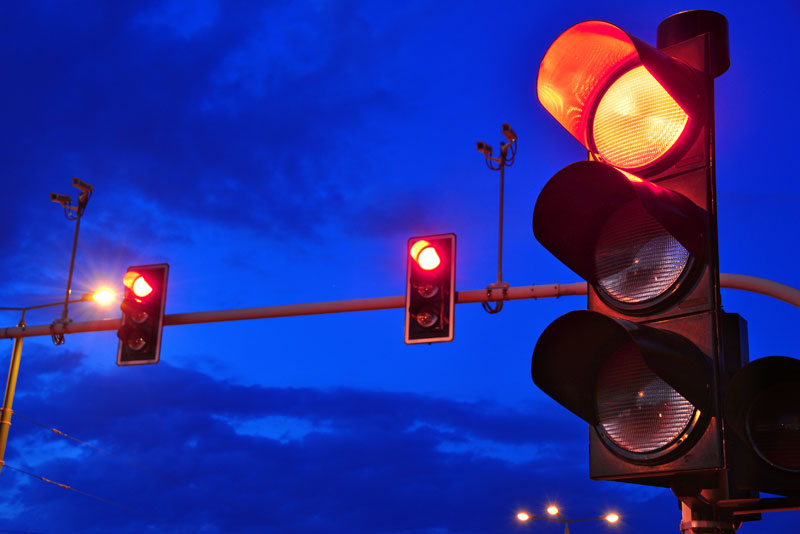
Disobeying a Stop Sign
Disobeying a Stop Sign
We have reviewed previously the charge of disobeying a traffic control device, as described in Section 11-305(a). An offense that applies very specifically to failing to stop at a stop sign is to be found in Section 11-1204(b) of the Illinois Vehicle Code.
It may be submitted that a stop sign is, indeed, a form of traffic control device, as referenced in Section 11-305(a). Therefore, what Section 11-1204(b) does, then, is to characterize the act of disobeying a stop sign more specifically.
A driver accused of having proceeded through a stop sign without ever having stopped first, and who is accused additionally of having been involved in a traffic accident that resulted from that failure to stop, may be issued an accident-related ticket for failure to stop at a stop sign.
Section 11-1204(b) includes the following langauge, which is not all of the language of that paragraph:
" . . . [E]very driver of a vehicle . . . approaching a stop intersection indicated by a stop sign . . . shall stop at a clearly marked stop line, but if none, then at the point nearest the intersection roadway where the driver has a view of approaching traffic on the intersecting roadway before entering the intersection." See, 625 ILCS 5/11-1204(b).
What Section 11-1204(b) clearly emphasizes is the duty to come to a complete stop at an intersection governed by a stop sign. The alleged failure to do this, when a traffic accident occurs as an alleged result, may give rise to a ticket for disobeying a stop sign under Section 11-1204(b).
Failure to Yield, or Disobeying a Yield Sign
Failure to Yield, or Disobeying a Yield Sign
Just as Section 11-1204 describes the offense of failure to stop at a stop sign, it also describes the offense of simply generally failing to yield. The moving violation of failure to yield, or disobeying a yield sign, is described in Section 11-1204(c).
Section 11-1204(c) requires a driver who is approaching a yield sign to stop at certain designated areas "if required for safety."
A driver who allegedly disregards a yield sign, and as a result is involved in a vehicular collision, may be ticketed for failure to yield under Section 11-1204(c).
When I defend you in a failure to reduce speed to avoid an accident case, I'm dedicated to seeking the best possible outcome of your charges and to keeping your driving record as clean as possible.
~Attorney Matt Hoffman, The HoffmanLaw Office
What is Failure to Reduce Speed to Avoid an Accident?
What is Failure to Reduce Speed to Avoid an Accident?
Failing to reduce speed as necessary
To avoid a colliding with a person or vehicle on or entering the roadway
In compliance with legal requirements and the duty to use due care
Why The HoffmanLaw Office?
Why The HoffmanLaw Office?

Analysis.
The HoffmanLaw Office always is focused on the presumption of innocence. Building on this presumption, The HoffmanLaw Office performs a systematic and searching ANALYSIS of the facts alleged in your Lake County failure to reduce speed to avoid an accident traffic ticket case. This intensive analysis may expose weakness in the prosecution's evidence and develops powerful defense arguments and strategies.

Preparation.
The HoffmanLaw Office strives to know completely the facts and law of your case. In traffic court, good results do not often emerge by chance. They come through intense PREPARATION that lays the groundwork for success. When you select The HoffmanLaw Office as your legal advocate, you team yourself with a philosophy of extreme preparation.

Results.
The HoffmanLaw Office views every time it appears in court with you as an opportunity to achieve RESULTS. Whether it is negotiating during a pretrial conference, cross-examining a witness, or delivering a closing argument at trial, The HoffmanLaw Office strives to be your best advocate at all times.



